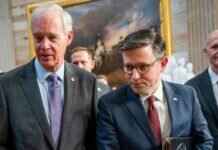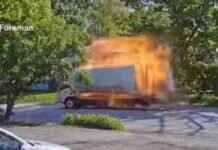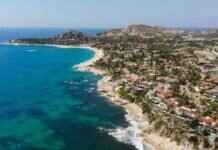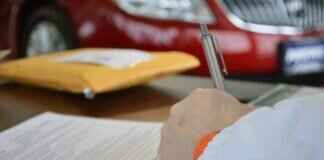Sen. Barrasso was all like, “Yeah, Trump will totally follow the law,” after his top aide was thinking about suspending a constitutional right. Sen. Amy Klobuchar was like, “Man, Democrats should’ve just had a primary in the 2024 race.” Transportation Sec. Duffy was like, “Elon Musk never even asked me to cut air traffic controllers,” which is kinda weird. And then GOP Sen. Barrasso was like, “I’m totally against raising taxes on anyone,” after Trump was talking about raising taxes on the rich. Sen. Amy Klobuchar was all, “The U.S. is totally not in a constitutional crisis, thanks to the courts,” in a full interview. And Sen. John Barrasso was like, “Congress is totally ready to go after Russia in a punishing way,” also in a full interview.
Meanwhile, Transportation Secretary Duffy was like, “I’m kinda worried about the whole airspace situation,” in a full interview that lasted a whopping 11 minutes and 33 seconds. A Democrat was elected to the North Carolina Supreme Court after a six-month legal battle, which is pretty crazy. Transportation Secretary Duffy also warned that air traffic control issues at Newark could happen elsewhere, which is definitely not good news for travelers. Trump was changing his tune on tariffs and taxation, which is not really surprising at this point.
A House Democrat was like, “Trump is attacking the courts because he doesn’t like the law,” which, like, makes sense. Trump’s UK trade deal announcement is hinting at progress in negotiations with other countries, which is, like, a big deal. A friend of Pope Leo XIV was saying how he’s a ‘unifier’ who will listen to all voices, which is, like, super important. A House Democrat was all, “The GOP-proposed tax cuts are morally wrong and fiscally stupid,” which is, like, a pretty bold statement.
An analyst was warning that India and Pakistan are on the brink of war, which is, like, really scary. The Fed was warning about economic uncertainty from Trump’s tariffs ahead of U.S.-China talks, which is, like, not great news for the economy. A Democratic lawmaker was saying that the number one check Democrats can have on Trump is taking back the House, which is, like, a pretty solid plan. Trump meeting with the Canadian PM is seen as a new opportunity to rebuild the relationship, according to the Ontario premier, which is, like, a positive step forward.
Rep. Byron Donalds was like, “There’s no way we can hire enough judges to process immigrants,” which is, like, a huge problem. And then Sen. Barrasso came back, saying Trump will totally follow the law, after his top aide was considering suspending a constitutional right. Amy Klobuchar was still sticking to her guns, saying Democrats should’ve had a primary in the 2024 race. Transportation Sec. Duffy was like, “Elon Musk never asked me to cut air traffic controllers,” which is, like, a relief. And GOP Sen. Barrasso was like, “Raising taxes on anyone is a big no from me,” after Trump mentioned a tax increase on the rich. Amy Klobuchar was still confident that the U.S. is not in a constitutional crisis, thanks to the courts, in a full interview. And Sen. John Barrasso was adamant that Congress is ready to take on Russia in a punishing way, also in a full interview.
In conclusion, with all these statements and interviews floating around, it’s clear that there’s a lot of opinions and plans being discussed in the political sphere. It’s hard to say what will actually come to fruition, but one thing’s for sure – the political landscape is always changing and evolving.















